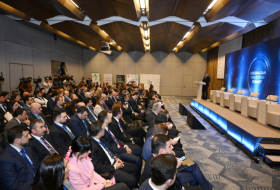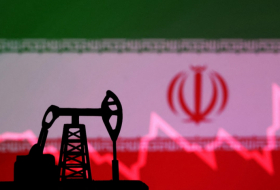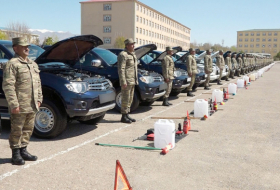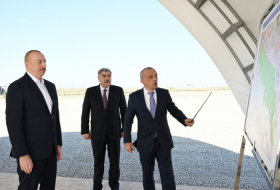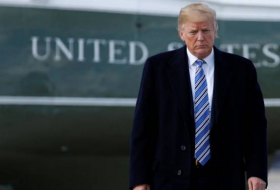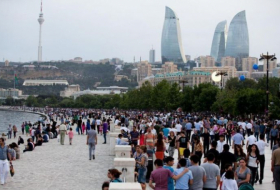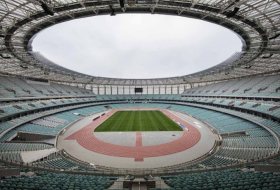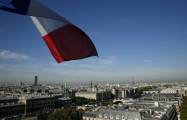So, the best of both worlds is seeing and experiencing technology in a foreign place. Even better is traveling forward in time to marvel and geek out in the world’s most innovative and technologically advanced cities.
Technology and innovation aren’t just Silicon Valley things. These five cities prove that technological advancement is working in every corner of the globe and show us how our world is smaller and more connected than ever before.
1. Tokyo
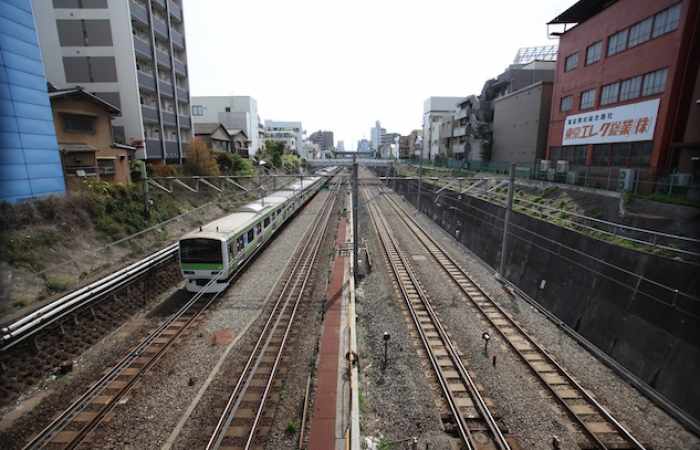
Tokyo will be getting a lot of attention in the next couple of years because the high-tech city is hosting the 2020 Summer Olympics. Luckily, the city has a strong economic infrastructure and an extremely advanced high-tech sector. They are already announcing fun and futuristic plans for the games, including an artificial meteor shower and driverless taxis to transport tourists. Tokyo has the most extensive urban railway system in the world; trains are the most advanced across the map, thanks to lines like the Yurikamome, which is driverless and completely run by computers. Japan also boasts the fastest train in the world—the maglev train, which runs at speeds close to 400 miles per hour. Tokyo has a ton of technology-related museums including the Toshiba Science Museum and the National Museum of Emerging Science and Innovation. Have you ever thought about what it would be like if the Jetsons ate sushi? In Tokyo, you can now know. Futuristic and high-tech dining includes waiterless sushi restaurants—you order through a tablet and then a conveyor belt delivers your food.
2. Tel Aviv
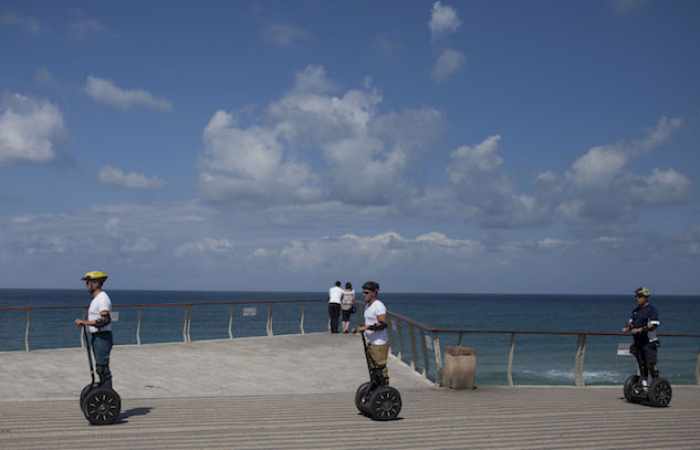
Tel Aviv was ranked as No. 5 in the 2015 Global Startup Ecosystem Ranking, after Silicon Valley, New York, Los Angeles and Boston. The best-seller Start-up Nation discussed Israel’s technological and economic success despite all odds against it. Technologically advanced perks for travelers include bike rentals that are paid for digitally, free Wi-Fi in the city and the Israeli version of Uber called "Gett"—everything is done through the app, including payment. Because of the high-tech scene, there are a few areas of Tel Aviv that cater to the young techie crowd with bustling food and shopping markets, most notably Sarona Market in a central area of Tel Aviv, and another indoor food market called Shuk Hatzafon (The Northern Market) in a Silicon Valley-esque district of Tel Aviv called Ramat HaHayal. Many prominent tech companies like Waze and Mobileye started in the fertile Israeli tech scene and have since been bought by huge names.
3. San Francisco
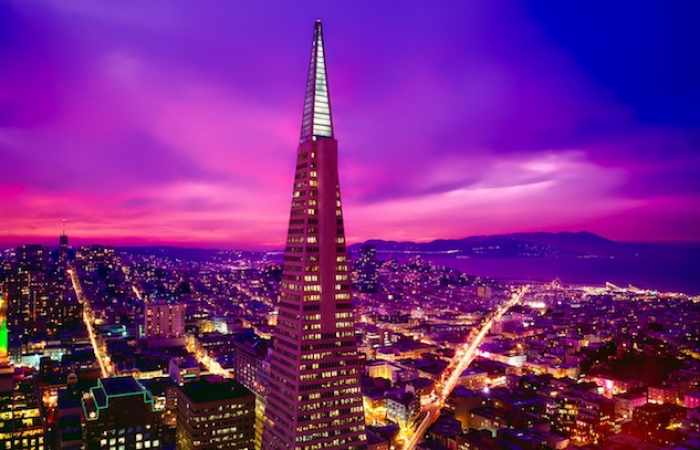
San Francisco is a Disneyland for young entrepreneurs who have flocked there to try their hand at the next big thing. Travelers can be flies on the wall in the hipster Mission District (where many startups are located) and sip overpriced—but amazing—coffee at Blue Bottle or Philz, both local favorites. The sharing economy began in San Francisco, which is extremely useful for travelers. Lyft and Uber all began in the city and are still thriving there. Other cool apps you can use while traveling include Postmates for food delivery from any part of the city or Luxe to valet park your car wherever you are in the city. Both ideas were born in San Francisco and have since expanded. Forum-based companies like Yelp and Craigslist are born and bred San Franciscans. Craigslist is very close to San Franciscans' hearts as it was one of the first word-of-mouth companies ever, and it's maintained its old-school format and values. Travelers can use Craigslist for vacation rentals and the calendar of events. Take a gander at Craigslist to see the real, genuine and weird San Francisco that everyone loves. Oh and that social media platform on which you’re about to share this article, Twitter … yeah, that was founded in San Francisco, too.
4. Singapore
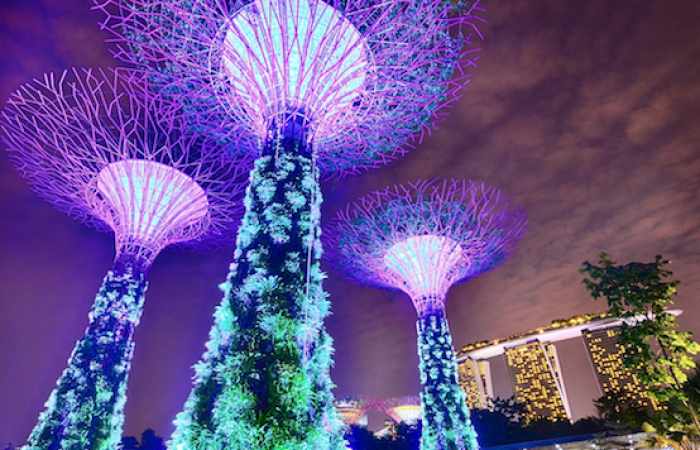
This small city-state is quite the conundrum: chewing gum and gay sex are illegal, yet its tech scene is exploding as the government proactively invests in its entrepreneurs. Get this: for early VC funding, the government matches the funding 100 percent, and for every $15,000 an investor puts into a startup, official Singaporean agencies invest $85,000. Singapore is most known for it’s extremely advanced urban planning and transportation systems. It implemented the world’s first traffic charging system back in 1975, which currently runs on a system of GPS, sensors and cameras that constantly adjust the price and the location, based on traffic patterns. Disabled and elderly pedestrians get a card powered by radio frequency to keep all the traffic lights automatically green for them when crossing the street. It was also just announced that Singapore will soon begin testing self-driving buses. They will start with two electric hybrid buses.
5. Dubai
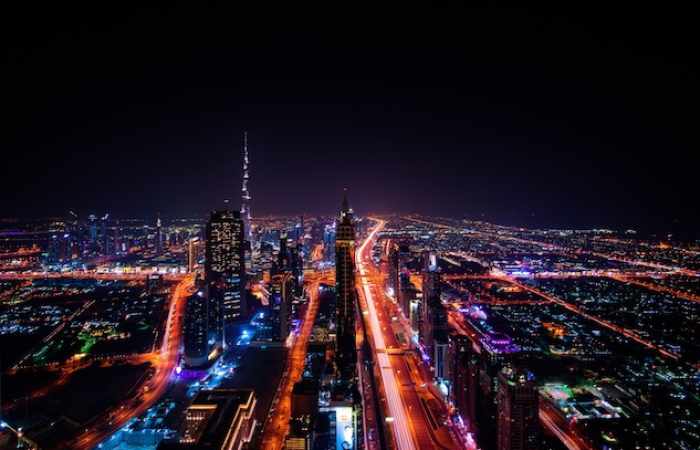
Dubai is home to a lot of world records, including the world’s tallest building, the Burj Khalifa, at the base of which sits the world’s biggest shopping mall, inside which sits the world’s largest acrylic panel. And it takes a lot of technology to keep this city in the competition. Luckily, the most populous city in the United Arab Emirates is rich in technology, development, tourism and … well … money. The Emirate of Dubai has set a goal to become the smartest city in the world. Because of the constant fluctuation in oil prices, the oil-rich country is starting to invest their money elsewhere, most notably in fintech startups, like Bridg, a mobile to mobile payment system, perfect for the retail sector. For 36 years and counting, the city has hosted Gitex, a technology conference that bring tens of thousands of people and the latest technology to Dubai. In 2015, the conference introduced such technology as a VR learning system for new drivers and a platform to order groceries on the subway, and 2016’s conference unveiled a police robot (dubbed as Robocop, obviously) with face recognition capabilities that is scheduled to be introduced on the streets next year.
/Paste Magazine/
More about: #technology #cities








